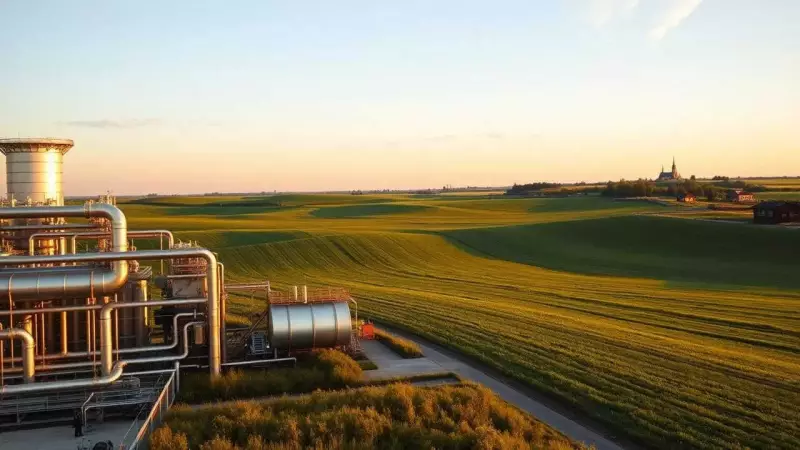
In a strategic move to safeguard its agricultural sector, India is actively pursuing the establishment of a fertilizer production facility in Russia, drawing crucial lessons from China's recent export restriction policies that have disrupted global supply chains.
Learning from Global Supply Disruptions
The initiative comes as India seeks to insulate its massive agricultural economy from potential supply shocks, particularly following China's implementation of export controls on critical fertilizers. This proactive approach aims to secure stable access to essential nutrients for India's vast farming community.
Government sources reveal that New Delhi is in advanced discussions with Russian authorities to set up a production unit focused on potash-based fertilizers. This mineral remains crucial for India's food production, with the country currently importing significant quantities to meet domestic demand.
Why Russia Makes Strategic Sense
Russia represents an ideal partner for this venture, holding approximately 20% of global potash reserves. The proposed collaboration would not only ensure direct access to raw materials but also provide India with greater control over its fertilizer supply chain.
"The China experience taught us valuable lessons about supply chain vulnerabilities," explained a senior government official involved in the negotiations. "By establishing our own production capabilities in resource-rich nations like Russia, we're building resilience against future market disruptions."
Protecting India's Food Security
This move holds profound implications for India's food security framework. With agriculture supporting nearly half the population and contributing significantly to GDP, stable fertilizer supply becomes non-negotiable for national food self-sufficiency.
The proposed plant would specifically address India's dependency on imported potash, which currently stands at around 4-5 million tonnes annually. By securing production capabilities abroad, India aims to create a buffer against price volatility and availability issues that have plagued global markets in recent years.
Broader Economic Implications
Beyond immediate agricultural benefits, this strategic investment promises long-term economic advantages:
- Reduced subsidy burden on imported fertilizers
- Stable pricing for Indian farmers
- Enhanced negotiating power in global markets
- Strengthened bilateral ties with Russia
Industry analysts view this as a mature approach to resource security, noting that similar models have been successfully implemented by other nations seeking to protect critical supply chains.
The China Factor: A Wake-up Call
China's decision to restrict fertilizer exports during 2021-2022 sent shockwaves through global agricultural markets, causing price spikes and availability concerns worldwide. India, as one of the world's largest fertilizer consumers, felt the impact particularly acutely.
This experience served as a catalyst for India's current strategic thinking. Rather than remaining vulnerable to similar actions in the future, Indian policymakers have opted for a more proactive, self-reliant approach to securing essential agricultural inputs.
The Russia project represents just one component of India's broader fertilizer security strategy, which also includes domestic production enhancements and diversification of import sources.





